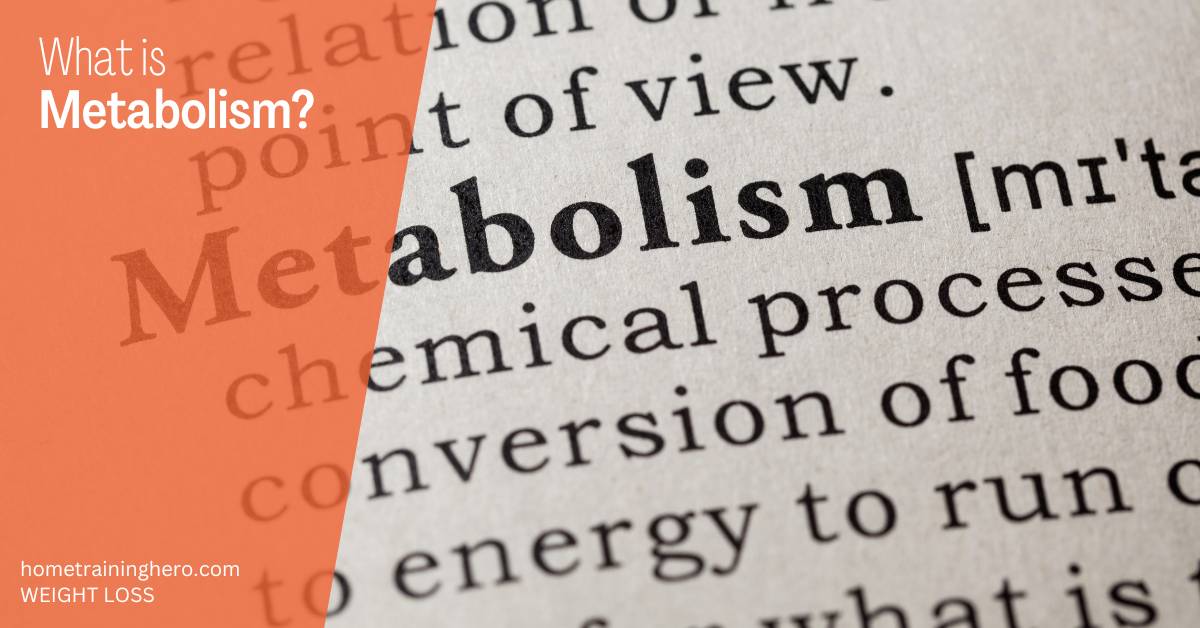Metabolism is the set of life-sustaining chemical reactions in an organism. The three main purposes of metabolism are: the conversion of food to energy to run cellular processes; the conversion of food/fuel to building blocks for proteins, lipids, nucleic acids, and some carbohydrates; and the elimination of metabolic wastes.
Metabolism is usually divided into two categories: catabolism, the breakdown of molecules to obtain energy, and anabolism, the synthesis of all non-energy molecules.
Most people think of metabolism as weight loss or gain. While that’s part of it, metabolism is really all about how your body gets energy from the food you eat and how it uses that fuel. It’s a complex process that involves many different interactions among various systems in your body.
Contents
Catabolism
Catabolism is the process of breaking down complex molecules in the body to release energy. This energy is then used by the body to perform various functions.
Catabolism is a vital process that helps the body to obtain the energy it needs to function properly. Without catabolism, the body would not be able to obtain the energy it needs to perform basic functions such as breathing and heartbeat.
Catabolism also plays an important role in fat burning. When the body breaks down fats through catabolism, this process results in the release of energy that can be used by the body for various purposes.
Anabolism
Anabolism is the process of synthesizing small molecules into larger ones. It is a part of metabolism, which is the set of life-sustaining chemical reactions in an organism. The three main purposes of anabolism are the construction of cell membranes, the synthesis of macromolecules, and the storage of energy.
Anabolism requires energy to proceed, and it often occurs in concert with catabolism, which is the breakdown of large molecules into smaller ones. Catabolism releases energy that can be used by anabolic pathways. Because anabolism and catabolism occur at different rates in different tissues, they are often regulated by hormones such as insulin and glucagon.
Slow and Fast Metabolism
There are two different types of metabolism: slow and fast. Slow metabolism is when the body burns calories at a slower rate. A fast metabolism is when the body burns calories at a faster rate.
A slow metabolism can be caused by several factors, including genetics, age, thyroid problems, and insulin resistance. People with slow metabolisms tend to have more trouble losing weight than people with fast metabolisms.
A fast metabolism means that your body can quickly convert food into energy, which can help you lose weight and stay healthy.
How Metabolism Affects Body Weight & Fat Burning
Body weight and fat burning are two important topics when it comes to metabolism. Many people don’t realize that their metabolism can affect both of these areas. A person’s metabolism is determined by the rate at which their body burns calories.
The higher the metabolic rate, the more calories are burned, and the easier it is to lose weight or burn fat. There are a few things that can help to boost a person’s metabolism, including diet and exercise.
Eating foods that are high in protein can help to increase metabolic rate, as well as exercise regularly. Interval training, where short bursts of intense activity are alternated with periods of rest, has been shown to be particularly effective in boosting metabolism.


